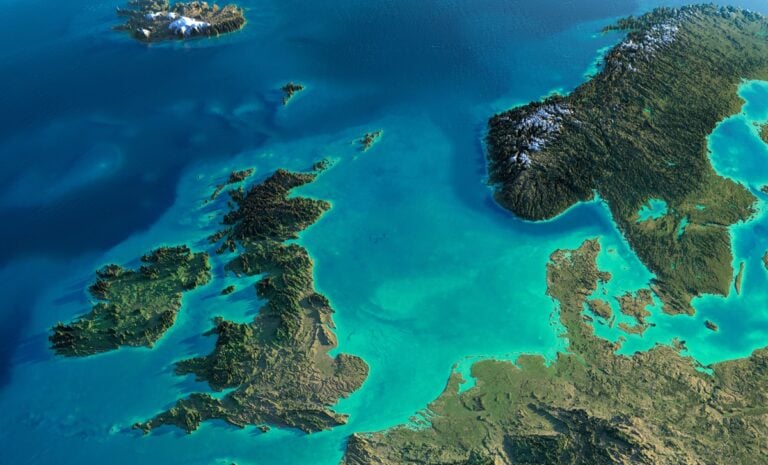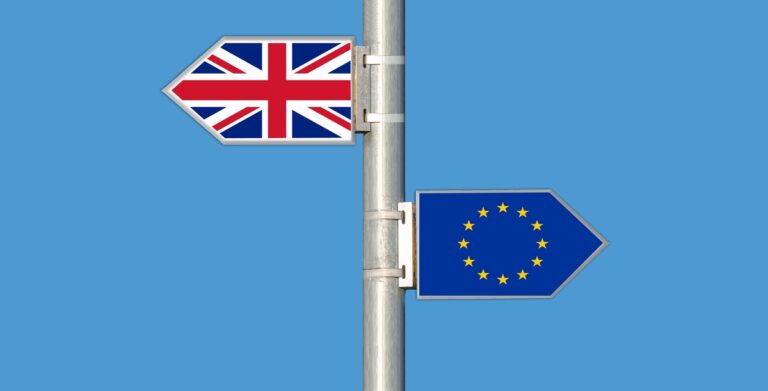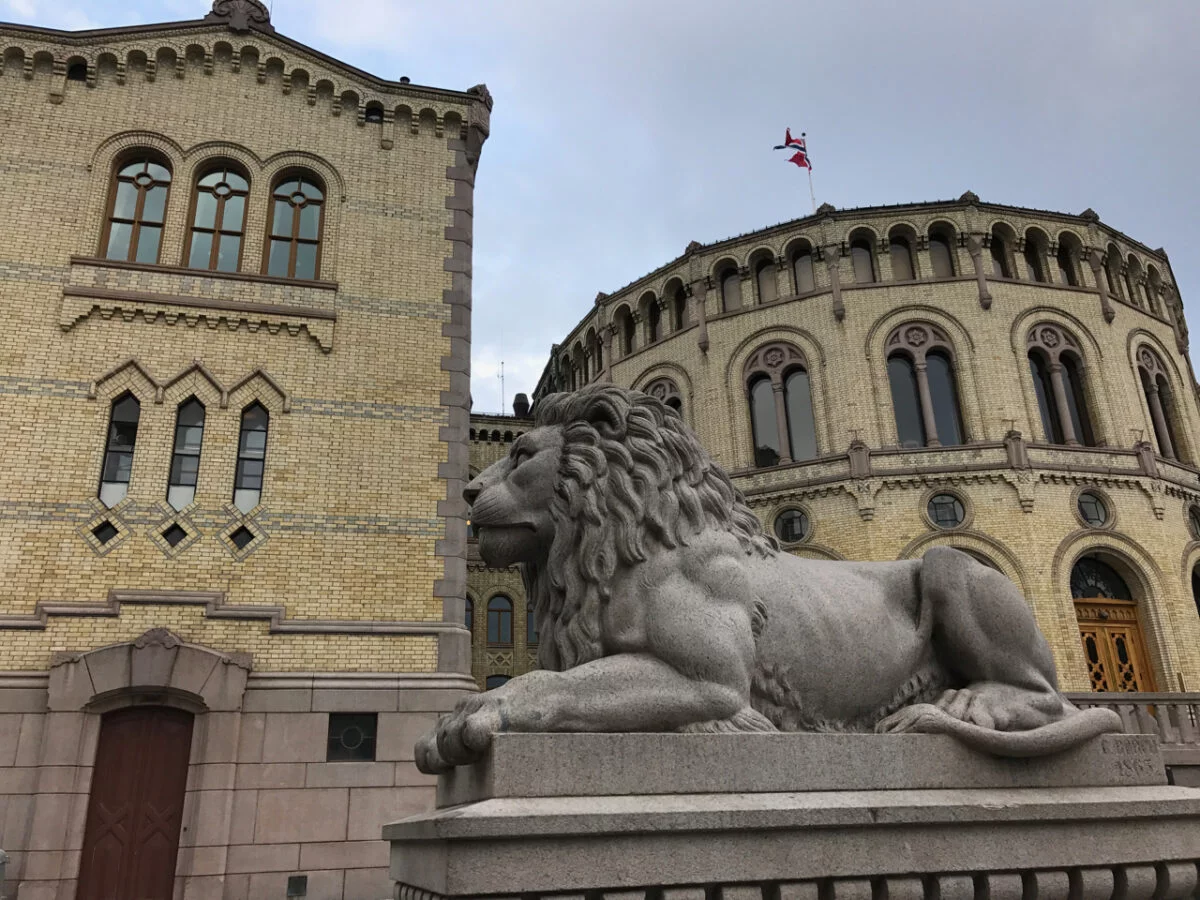
The British Embassy hosted a Town Hall meeting on British citizens' rights in Norway in relation to Brexit.
Following months of uncertainty about the future rights of Britons living in Norway after Brexit, the British Embassy held an information meeting in Oslo to address the concerns of the 15,000 Brits that live and work in Norway, and the 18,000 Norwegians who live and work in the UK.
Two members of the Department for Exiting the European Union have been actively working with the countries that are closely aligned to the EU without being full members: Norway, Iceland, Switzerland and Liechtenstein. They joined Sarah Gillett, the British Ambassador to Norway, to give an update.

The implementation period is “good news”
First of all, the Ambassador spoke of Brexit in general terms based on the recent announcement of the implementation period. “The implementation period is good news for a number of reasons.
Although the UK will leave the EU next March, we will continue with the same set of circumstances for citizens and businesses until December 2020. There are though going to be some important differences.”
“For example, when we leave the EU next March we are going to be able to negotiate with other countries such as Norway, although any agreements could only come into affect after the implementation period.”
“From the outset, Norway and the UK agreed that each others citizens were positive contributors and there should be no difficulty in coming to an arrangement. Once the direction of travel between Britain and the EU became clear, the UK began detailed discussions with Norway.”

Citizens' rights “remain a priority”
The withdrawal agreement which was agreed in December contains some interesting points, which the team hopes will also be extended to Norway.
“Anyone who is lawfully resident at the end of the transition period will be covered by the withdrawal agreements in the country they are currently resident in. These people can have confidence that they will be able to live and work as they do today,” explained a spokesperson.
Permanent residence
One key piece of information given is that permanent residence will still be valid under the terms of the withdrawal agreement, and those without the five years needed for permanent residence will be given the opportunity to earn those years.
Whether you need to reapply for permanent residence on an ongoing basis will be up to the individual country. Permanent residence will only be lost once the person has been out of the country for five years, an extension on the usual rules.
Although this deal currently applies to EU citizens only, it is hoped to extend this to Norway. However, the team were not able to commit to this.
“Any specifics on Norway and their permanent residence process are for them. We can't answer those questions today. Our expectation is that we will aim to mirror as much as we possibly can what we are agreeing with the EU”, said a spokesperson.
I know many people who have taken permanent residence (myself included!) since Brexit, and you can find out full details on how to do that here.
Pensions
Currently pension contributions earned in Norway are counted towards a state pension in the UK and vice-versa. Nothing is expecting to change for those people who fall under the withdrawal agreement.
“Your contributions will continue to be aggregated, and those contributions can be made both before and after the exit and they will both be recognised”, explained a spokesperson.
There wasn't a great deal of new information given but it was useful to hear that the rights of British citizens living in Norway are planned to follow those of Britons living anywhere in the EU.


Thanks for this informative article, David. As someone planning on moving to Norway, this sounds like I should move to Norway before Britain leaves the EU, rather than after – would you agree with that, or does it not matter?
It absolutely matters. No-one knows what the rules will be after Britain leaves the EU, but it is almost certain that it will not be as easy for Brits to move to a EU/EEA country as it is today.
Does this (leaving Eu/EEA) also cover uk citizens that are living in uk and receiving a state pension from Norway.
I worked in Norway for 12 years and paid NI to Norway. I retired 2years ago and currently receive a monthly state pension from Norway (NAV). Will leaving the EU effect this pension?
Does anyone have any information as to how my state pension contributions in the UK for the last twenty years are transfered to Norway? Do I have to do anything?
I am living and working here now (still fighting to get an ID number though) and have no intention of going back to the UK so its important for me to make sure there are no issues with receiving the state pension.
Noone know what will happen after Brexit. The above article still stands
Hi, I have two children under 18 living in Norway (moved from uk to Norway with Norwegian mother after divorce). I miss them terribly and want to join them. I wondered if brexit will stop me doing that or should I go through the route of family immigration??
Thanks for the article, David. Was there any mention of the dual-citizenship plans that were being mooted a year or so ago?
We are planning to go to Norway on 1st April for our daughter’s wedding in Oslo. Do you think that we will be able to travel there after Brexit without hinderence?
Hi, I am planning on moving to Norway, does this mean I have until December 2020 to move there? Or do I still only have unil March 2019?
Hi, As a UK citizen I’m looking to move next year but i’m worried because of Brexit, if I go to Norway and rent somewhere (and quarantine for ten days) could I get residence before the deadline or will this not leave enough time? Many Thanks Jonathan
If you register yourself as living in Norway before December 31 the old rules apply. After January 1 you must apply for a work permit as a non-EU citizen.